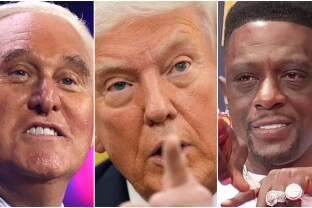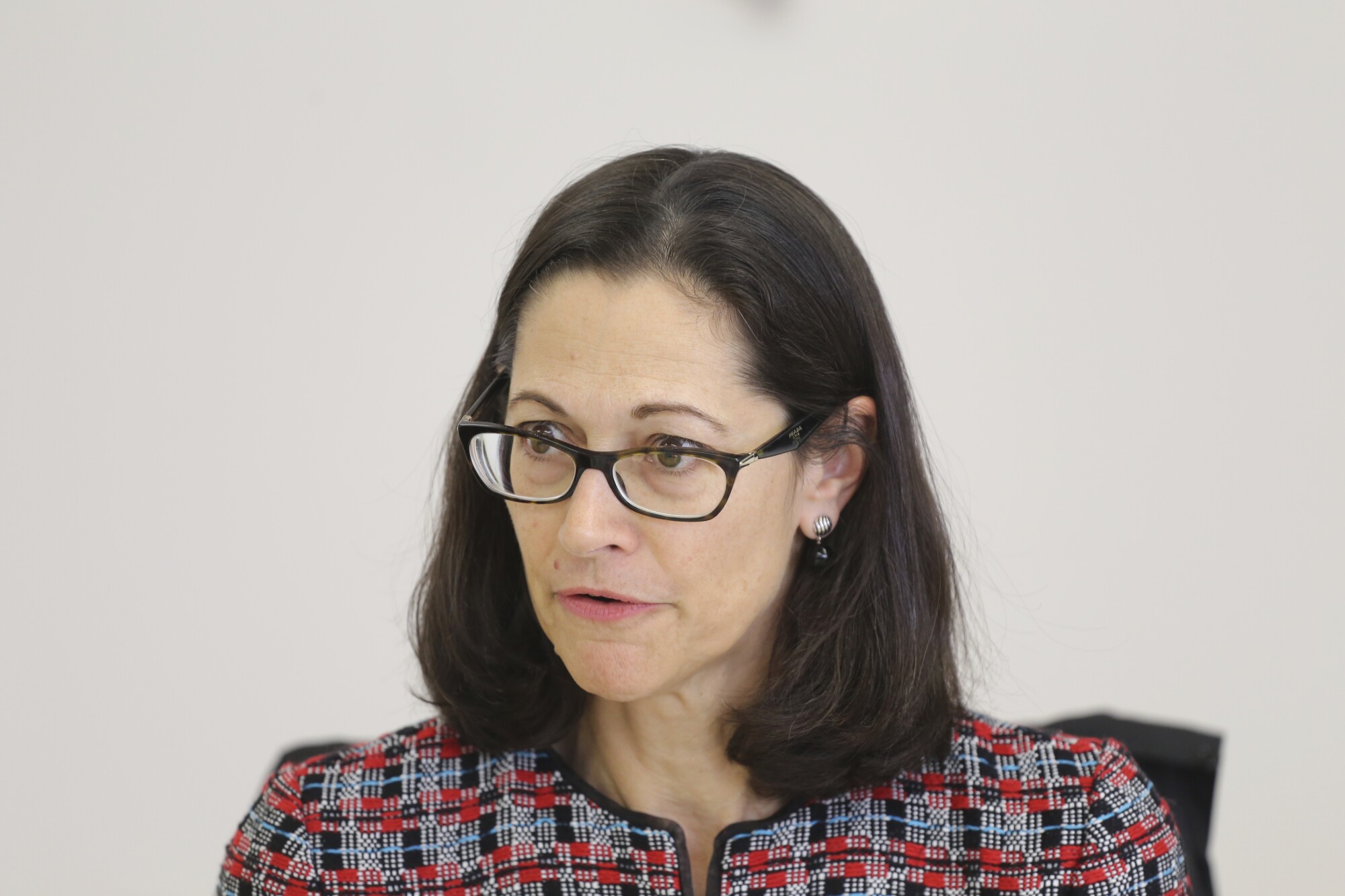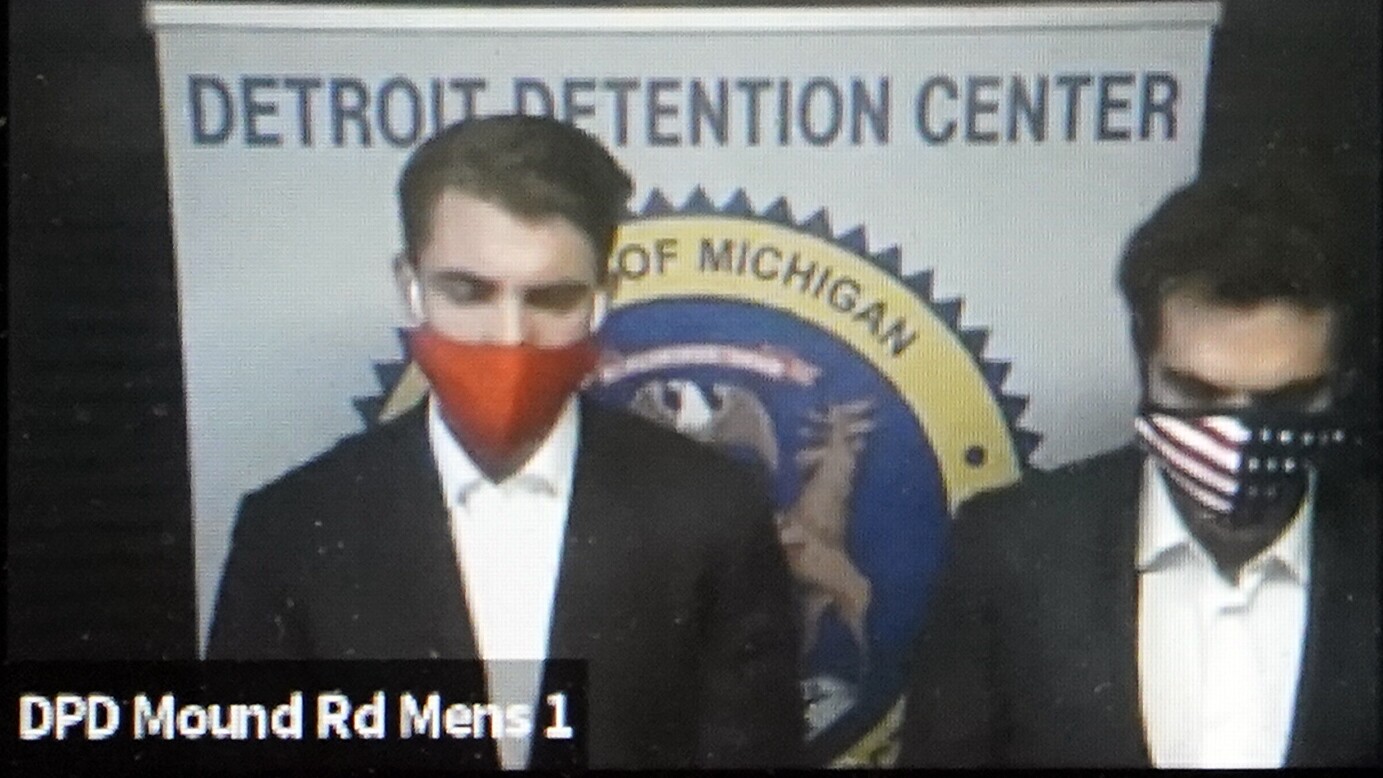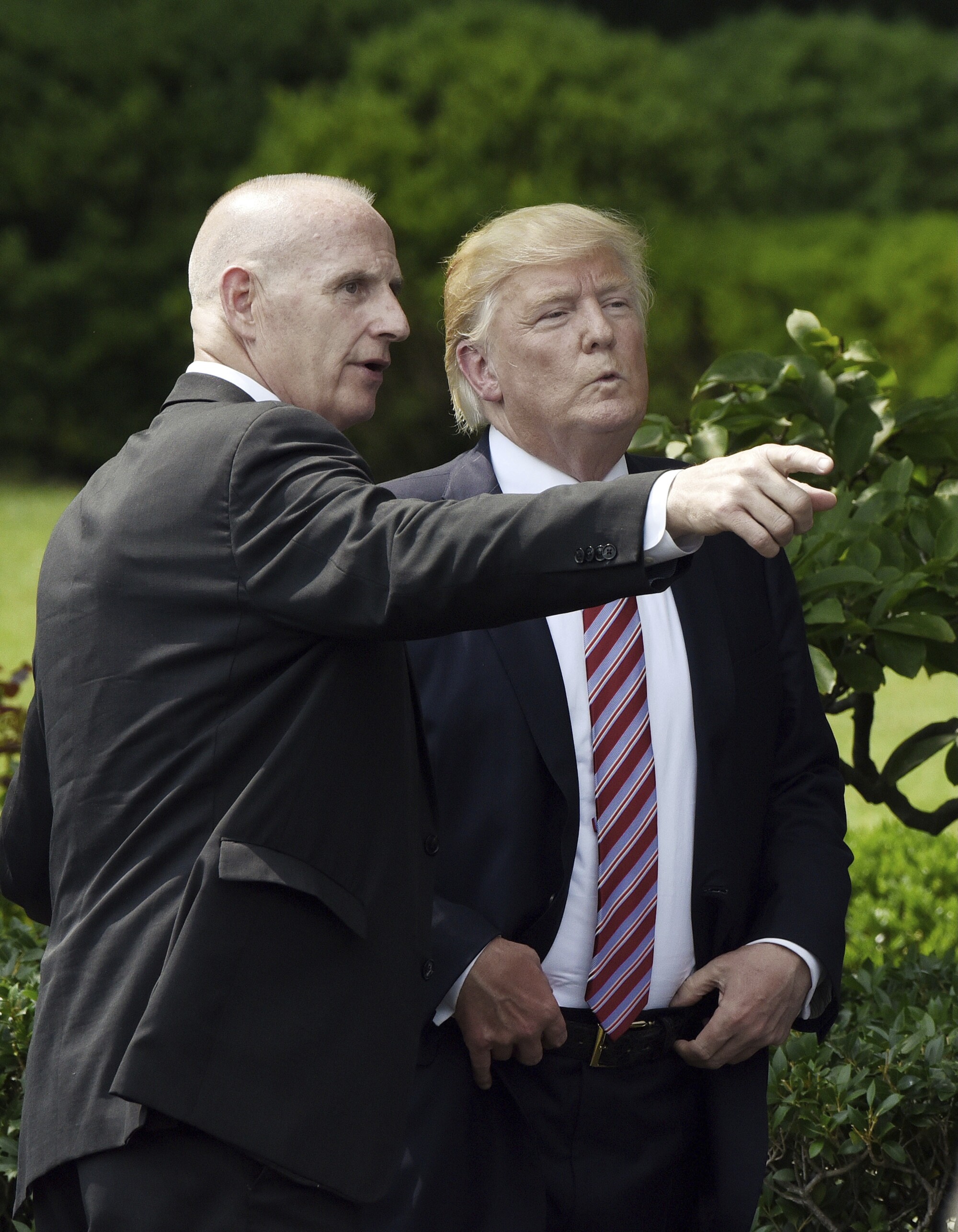A rapper.
A scam PAC operator.
A former utilities executive.
They’re just a few of the people participating in the flourishing presidential pardon economy, where wealthy convicts of all stripes are paying lobbyists big money to potentially score them enduring freedom from President Donald Trump.
NOTUS identified six previously unreported individuals who have recently hired lobbyists to help them seek pardons from Trump.
Among them: Anne Pramaggiore, the former CEO of Illinois utility giant Commonwealth Edison, who paid Crossroads Strategies $80,000 last quarter for “advising on public policy and legislative matters relevant to the pardon process.”
Sign Up for NOTUS’ Free Daily Newsletter
Pramaggiore was convicted on nine charges related to an alleged bribery scheme involving former Illinois House Speaker Michael Madigan and sentenced on July 21 to two years in prison — days after she hired Crossroads Strategies to advise on the pardon process.
Pramaggiore, who is set to report to prison on Dec. 1, is appealing her conviction under the Foreign Corrupt Practices Act after a trial court vacated the four bribery charges.
Crossroads Strategies directed questions about Pramaggiore’s case to adviser Mark Herr, who told NOTUS: “Anne Pramaggiore was wrongly convicted and is appealing her case to the Seventh Circuit. At the same time, she is exploring all options in her pursuit of justice, including the possibility of a pardon.”
Clients are also flocking to Jack Burkman and Jacob Wohl of JM Burkman & Associates — lobbyists who themselves pleaded guilty in 2022 to telecommunications fraud as part of an illegal robocall scheme — to lobby for pardons and on “DOJ issues.”
Their client list includes rapper Boosie Badazz — real name: Torence Ivy Hatch Jr. — who in August pleaded guilty to federal gun charges and hired JM Burkman & Associates this month to lobby the White House for a presidential pardon.
JM Burkman & Associates is also raking in big money from two more previously unreported clients.
The firm received $960,000 during the second quarter to “[seek] a federal pardon” for Joseph Schwartz, a former nursing home executive sentenced this spring to three years in prison for a $38 million tax-fraud scheme.
And JM Burkman & Associates client Tim McPhee, who in August pleaded guilty to charges related to a multimillion-dollar investment scheme, has paid the firm $160,000 since the end of 2024 to lobby on “DOJ issues.”
Burkman did not respond to requests for comment, including whether “DOJ issues” included a federal pardon. Schwartz, McPhee and their respective lawyers did not respond to requests for comment.
Meanwhile, a convicted “scam PAC” operator, William Tierney, who in 2018 pleaded guilty to defrauding tens of thousands of donors, paid the Vogel Group $100,000 during this year’s second quarter.
The Vogel Group told NOTUS it was not authorized to discuss the case, and Tierney did not respond to emailed requests for comment.
In two other previously unreported cases where individuals hired lobbyists for pardon work, it’s not clear who exactly they are or what their cases entail.
Efforts to connect with Vogel Group client Komal Patel, who in August hired the firm to lobby for clemency and paid $100,000 last quarter, were unsuccessful.
The Adomi Advisory Group disclosed receiving a total of $20,000 during the fourth quarter of 2024 and first quarter of 2025 to lobby to commute the sentence of the son of an individual named Dr. Shallfdeen Amuwo. Johanna Leblanc, a partner at the firm and the lobbyist on the account, did not respond to requests for comment.
While pardon lobbying is not itself a new phenomenon, K Street insiders have observed an uptick in interest in this type of work since Trump took office. And lobbyists who are close to Trump are doing particularly well in the presidential pardon economy.
Checkmate Government Relations — helmed by Donald Trump Jr.’s friend Ches McDowell — reported receiving $450,000 last quarter to lobby the White House on “executive relief” for the world’s largest cryptocurrency exchange, Binance, which in 2023 agreed to pay more than $4 billion to resolve a Justice Department investigation.
Trump issued a controversial pardon last week for Binance founder Changpeng Zhao, who previously pleaded guilty to violating federal anti-money laundering laws.
Law firm BakerHostetler disclosed receiving $30,000 from Zhao personally to lobby for “executive relief” during the second quarter and, separately, $260,000 from Binance during the first three quarters of 2025 to lobby on a range of issues including “executive relief” from the Executive Office of the President.
Then there’s Roger Ver, also known as “Bitcoin Jesus.”
Trump adviser Roger Stone registered to lobby on the “US government prosecution of Roger Ver” after Ver agreed this month to pay nearly $50 million as part of a deferred prosecution agreement with the Department of Justice to resolve charges of tax evasion.
Stone disclosed receiving $600,000 from Ver during the year’s first quarter for work related to “ending the exit tax and reform of cryptocurrency tax policy.” Stone has not reported receiving additional funds since but continues to be retained by Ver, according to federal lobbying records.
Even Trump’s former bodyguard, Keith Schiller, is getting in on the action.
He and his firm, Javelin Advisors, registered to lobby for “executive relief” for Fred Daibes, who was convicted last year of bribing former Democratic Sen. Bob Menendez and his wife with gold bars and other luxury goods, and reported receiving $1 million during the first quarter of this year.
Greg Lindberg, an insurance executive who last year pleaded guilty to fraud and money laundering, also hired Javelin this summer to lobby for an “executive pardon.”
Stone declined to comment. Checkmate Government Relations, Schiller and Teresa Goody Guillen, the BakerHostetler lobbyist on the Zhao and Binance account, did not respond to requests for comment.
While revealing, federal lobbying disclosures only provide a snapshot of the pardon work being done in Washington, which is driven by lawyers that may — or may not — meet the legal criteria to register under the Lobbying Disclosure Act.
Peter Ticktin — Trump’s former lawyer who has advocated for pardons for Jan. 6 rioters, the Oath Keepers and Proud Boys — told NOTUS he’s been offered $1 million to represent a client.
“The fact that people are charging a lot of money, that’s because lawyers charge a lot of money,” said Ticktin, who has his own slate of clients he’s working to get pardoned. “It’s not as though they’re charging a lot for pardons and everything else is a lower cost.”
“It’s not as though we’re selling influence because we don’t have influence,” he added, defending some parts of the pardon economy that are fully above board. “What we have is trust.”
A million dollars can be just a starting point for some seeking support, sources told NOTUS.
Wealthy, well-connected people in legal trouble have good reason to believe Trump will give them an audience, particularly if they’ve supported, cheered or otherwise flattered the president.
Trump has already issued about 1,700 acts of clemency since returning to the White House, starting on Inauguration Day, when he issued “a full, complete and unconditional pardon” for nearly 1,500 individuals convicted on charges related to the storming of the U.S. Capitol on Jan. 6, 2021.
And earlier this month, Trump commuted the prison sentence of convicted fraudster and former Rep. George Santos of New York, who was three months into a seven-year stay behind bars.
Three people familiar with the pardon process and interviewed this month by NOTUS predicted that Trump will pardon many more people this year.
But pardon-related factions are also forming within — and outside — of the White House.
Some people in Trump’s orbit want to slow the pardon process down, concerned of the network that is financially benefiting off the pardon business.
A senior administration official told NOTUS that the White House is aware of the growing pardon ecosystem and argued there are strong procedures in place to vet applications and approve pardons for those who qualify.
But they told NOTUS that the president was not personally aware of the burgeoning pardon economy, a claim corroborated by a source close to Trump.
There are some people around the president who want him to ramp up his clemency efforts as he soon enters the second year of his four-year term to take advantage of his lame-duck status and commitments to override what they see as a cascade of prosecutorial overreach from the previous administration.
It underscores the reality that the White House, not the Department of Justice, is now the epicenter of pardons.
The DOJ for decades oversaw the process almost exclusively, and typically prioritized federal felons who showed signs of rehabilitation and growth while incarcerated, as NOTUS reported back in June.
Even so, the traditional path to a presidential pardon — the Office of the Pardon Attorney — is still processing applications during the government shutdown, the Department of Justice told NOTUS.
“Among the things that is unique about the current environment is the perception — and I think it’s probably accurate — that instead of kind of a single path, you now have a broader array of paths into that process,” one source familiar with the process told NOTUS.
In the White House, the process is carried out by fewer than 10 aides, who present the president with pardon suggestions.
Chief of staff Susie Wiles is a gatekeeper who typically decides who can present such cases to the president. Typically, it has been White House counsel David Warrington, DOJ pardon attorney Ed Martin or pardon czar Alice Johnson — who all have their own various lists with distinct interests, sources close to the process tell NOTUS.
The White House did not respond for comment.
Ticktin, emphasizing the relationship-oriented nature of this business, said that people within the administration, such as Martin, are able to make a recommendation to the president because “they know I’m not bringing in somebody who’s going to hurt a five-year-old child.” Ticktin sticks to clients who, in his view, are victims of the weaponization of justice or overzealous prosecutors.
Senior officials temporarily slowed the pardon process down, creating a four-month hiatus of the president approving pardons, according to two sources. Part of the concern was over the optics of who might be profiting from the pardon industry, as NBC News first reported.
A second person familiar with the process said that the White House was tentatively planning to unveil a slate of pardons near Fourth of July weekend with a “liberation” theme — but missed the day.
A third source with knowledge of the pardon scheduling denied that unreported detail, telling NOTUS that “the pardon process was never intentionally slowed down.”
“The challenge had always been carving out time in the president’s incredibly busy schedule. July 4 weekend was jam packed, with the president signing the ‘one big, beautiful bill’ following his efforts to get it across the finish line,” they added.
—
This article has been corrected to reflect the grounds on which Anne Pramaggiore is appealing her conviction.
Sign in
Log into your free account with your email. Don’t have one?
Check your email for a one-time code.
We sent a 4-digit code to . Enter the pin to confirm your account.
New code will be available in 1:00
Let’s try this again.
We encountered an error with the passcode sent to . Please reenter your email.





